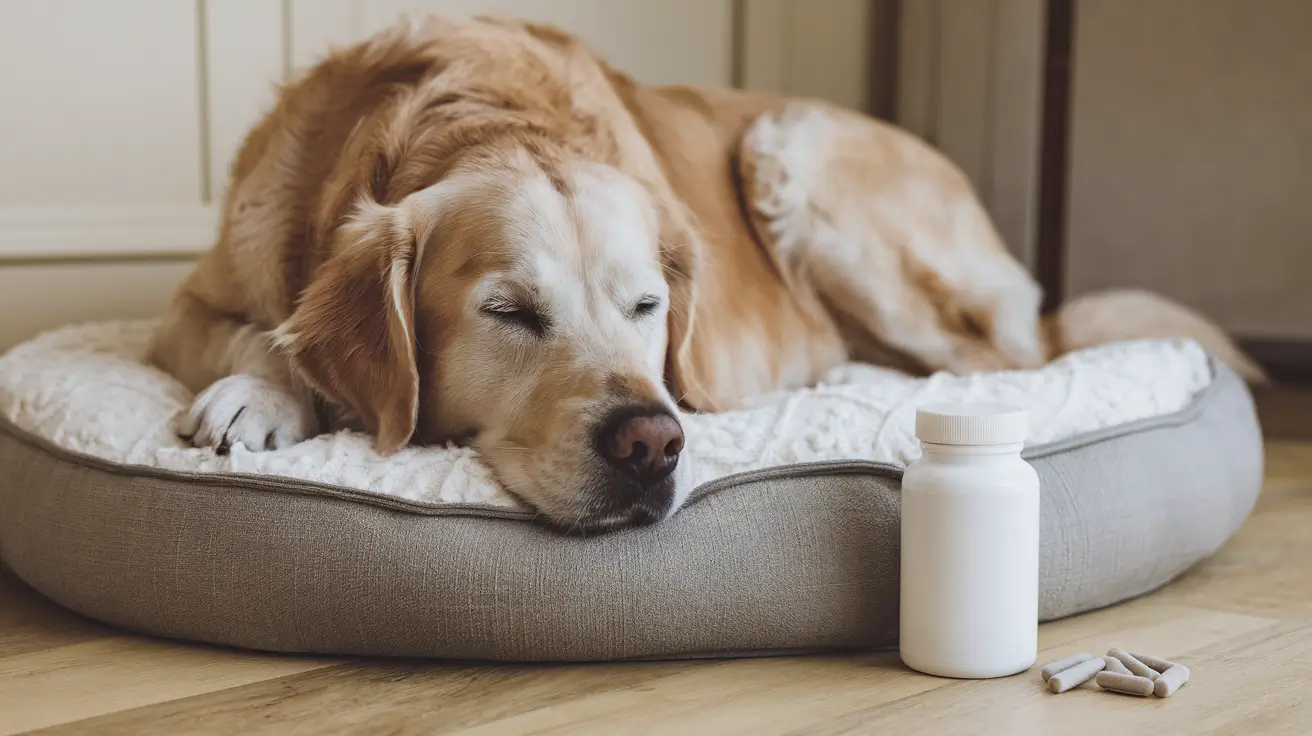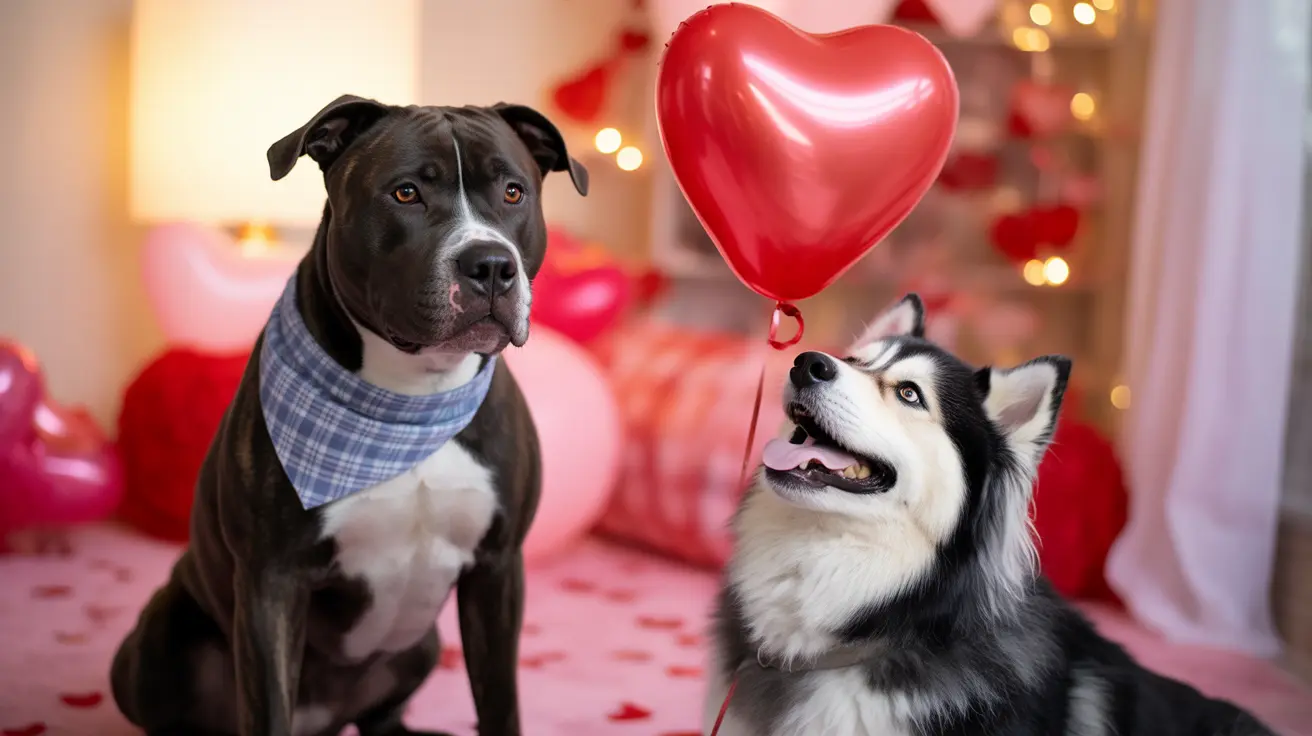メラトニンの導入
メラトニンは松果体で生産される天然のホルモンで、気分や睡眠、体内サイクルの調節に関与しています。ヒトでの有用性は広く報告されていますが、犬においてもさまざまな健康問題に対する可能性が注目されています。このホルモンは睡眠障害や不安、特定の行動障害の管理に役立ち、愛犬の生活の質を向上させる包括的な手段を提供することがあります。
犬におけるメラトニンの安全性と有効性
メラトニンは一般的に犬に対して安全と考えられており、安全性プロファイルは良好です。毒性が低く、犬における明確な過量摂取閾値は確立されていません。このため、犬の健康問題に対する代替治療として検討されることがあります。ただし、安全性が高い一方で、個々の健康状態や他の薬剤との相互作用を踏まえ、使用前に獣医師に相談することが重要です。
犬に対するメラトニンの治療的用途
不安・ストレスの軽減
メラトニンは犬の不安やストレスを軽減するのに有効であることが示されています。獣医が実施する「チルプロトコル(落ち着かせる対策)」に組み込まれ、雷雨や花火などのストレス場面で犬を穏やかに保つのに役立ちます。鎮静効果により、不安を感じやすい環境での犬の生活の質を向上させることが期待されます。
脱毛への対応
経験的な報告では、メラトニンが犬の脱毛(脱毛症)に有益である可能性が示唆されています。メラトニンは毛周期を刺激すると考えられており、脱毛に悩む犬への潜在的な対処法となり得ます。しかし、適切な用量や治療の適合性を判断するために獣医師に相談することが不可欠です。
自己免疫疾患のサポート
十分に研究されているわけではありませんが、メラトニンは免疫性疾患、例えば免疫性血小板減少症の補助療法として経験的に用いられることがあります。この疾患は血液凝固に関与する血小板が破壊される状態です。自己免疫疾患は複雑であるため、メラトニンを治療選択肢として検討する際は必ず獣医師の指導を仰いでください。
犬へのメラトニンの投与方法
用量に関する考え方
犬に対する適切なメラトニンの用量は、犬の体格や治療対象となる症状によって異なります。一般的な目安としては体重1kgあたり0.1ミリグラム程度とされることがありますが、個体差があるため、犬の状態に合わせた用量設定は獣医師と相談して決めることが重要です。
投与形態
犬用のメラトニンサプリメントは錠剤、液体、グミなどさまざまな形態で市販されています。錠剤やカプセルは用量が安定しているため好まれることが多いですが、飲み込みが苦手な犬には液体タイプが適している場合もあります。製品を選ぶ際は、キシリトールなど犬にとって有害な成分が含まれていないかを確認し、第三者機関の検証がある高品質なサプリメントを選ぶことを推奨します。
副作用と薬剤相互作用の可能性
副作用の観察
メラトニンは一般的に安全ですが、めまい、吐き気、過度の眠気などの副作用が現れる犬もいます。まれに腫れや呼吸困難などのアレルギー反応が起きることもあり得ます。投与中は愛犬の様子を観察し、異常が見られた場合は速やかに獣医師に相談してください。
薬剤相互作用の理解
メラトニンは特定の薬剤と相互作用することがあり、薬の効果を減弱させたり副作用のリスクを高めたりする可能性があります。降圧薬、抗凝固薬(血液を薄くする薬)、コルチコステロイドなどと相互作用する恐れがあるため、すでに薬を投与中の犬にメラトニンを導入する際は必ず獣医師に相談してください。
よくある質問
メラトニンで不安を管理できますか?
メラトニンは犬の不安管理に効果的であり、特にストレスとなる状況の1〜2時間前に投与することで効果が現れやすくなります。このタイミングで与えると、犬が落ち着きやすくなります。
適切な用量はどう決めればよいですか?
適切なメラトニンの用量は犬の大きさや健康状態によって異なります。個別のニーズに合わせた正しい用量を決めるために、獣医師に相談することが不可欠です。
過剰投与の心配はありますか?
犬におけるメラトニンの過剰摂取リスクは低いとされていますが、大量の錠剤を誤飲した場合は別の問題が発生する可能性があります。メラトニンやその他のサプリメントを投与する前には、必ず獣医師に相談して安全性を確認してください。
安全性の保証はありますか?
メラトニンは犬に対して比較的安全であり、重篤な副作用や死亡の公式報告はほとんどありません。しかし、投与を始める前には獣医師の専門的な助言を受け、愛犬の健康状態に適しているか確認することが重要です。
結論
メラトニンは犬にとって、不安軽減、睡眠パターンの改善、特定の皮膚疾患や自己免疫疾患への潜在的なサポートなど、有益な補助剤となり得ます。ただし、投与は必ず獣医師の指導のもとで行い、ペットの安全と健康を最優先に考えてください。適切に使用することで、飼い主は安心してメラトニンを犬の健康管理に取り入れ、生活の質を向上させることができます。






